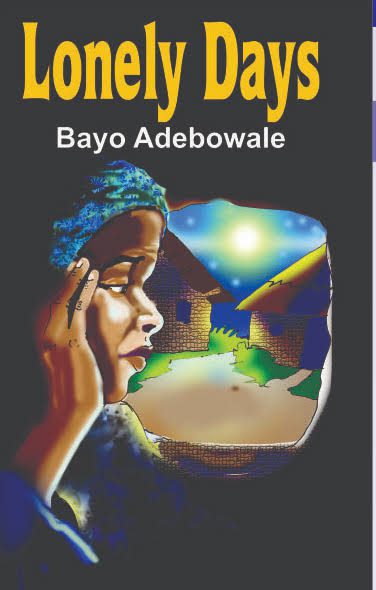Chapter Three of Bayo Adebowale’s Lonely Days presents a vivid portrayal of the traditional customs, unequal treatment, and enduring hope that define the lives of widows within this community.
Through Yaremi’s perspective and the depiction of widows’ struggles, Adebowale explores themes of hope, gender inequality, and societal expectations.
In Kufi Village, traditional norms surrounding widowhood come to the forefront. Widows are segregated from other villagers, as they follow distinct paths to the stream. This physical separation symbolizes the emotional and social isolation that widows experience.
Furthermore, their appearance is marked by shaved heads and tattered clothing, devoid of any embellishments or makeup. The prohibition of open recreation, including dancing, further underscores their marginalized status within the community.

Despite these restrictions, widows remain resilient, harbouring a forward-looking mindset that anticipates the eventual return to normalcy.
The theme of hope is evident as widows navigate their challenging circumstances. Instead of succumbing to depression, they maintain an outlook of survival, clinging to the belief that their current situation is temporary. This resilience demonstrates their determination to transcend adversity and reclaim their rightful place in society.
The stark contrast between the treatment of widows and widowers highlights the theme of gender inequality prevalent in Kufi Village. Widows face suspicion and accusations of culpability in their husbands’ deaths. This suspicion often leads to humiliating practices, such as jaggedly scraping off their hair or forcing them to drink the water used to wash the deceased’s body, all in the name of proving innocence. This unequal treatment extends to locking widows up with the corpses, a coercive tactic to force confessions. Despite these challenges, some widows remain steadfast and refuse to succumb to such manipulative tactics.
In contrast, widowers are encouraged to remarry quickly, perpetuating the double standard within the community. This unequal treatment underscores the societal bias that favors men while subjecting women to harsh scrutiny and mistreatment during their widowhood. This theme of gender inequality reflects the power dynamics entrenched in traditional norms and raises questions about the fairness of these practices.
In conclusion, Chapter Three of Lonely Days offers the readers a window into the world of widowhood in Kufi Village. Through Yaremi’s narrative and the stories of other earlier widows like Dedewe, Radeke, and Fayoyin; Bayo Adebowale skillfully examines the themes of hope, gender inequality, and the resilience of individuals striving to maintain their dignity and humanity in the face of societal pressures.
Read Also:
- Chapter 1 Summary of Bayo Adebowale’s “Lonely Days”
- Chapter 2 Summary of Bayo Adebowale’s “Lonely Days”
- Q & A: How Does Alani Contribute to Yaremi’s Loneliness in Bayo Adebowale’s “Lonely Days”?
- Q & A: Comment on Yaremi as a strong-willed character in Bayo Adebowale’s “Lonely Days”.
 WHATSAPP: Click HERE to join the new Literature PADI WhatsApp group to receive latest updates on your phone and for further literary discussions!
WHATSAPP: Click HERE to join the new Literature PADI WhatsApp group to receive latest updates on your phone and for further literary discussions!








